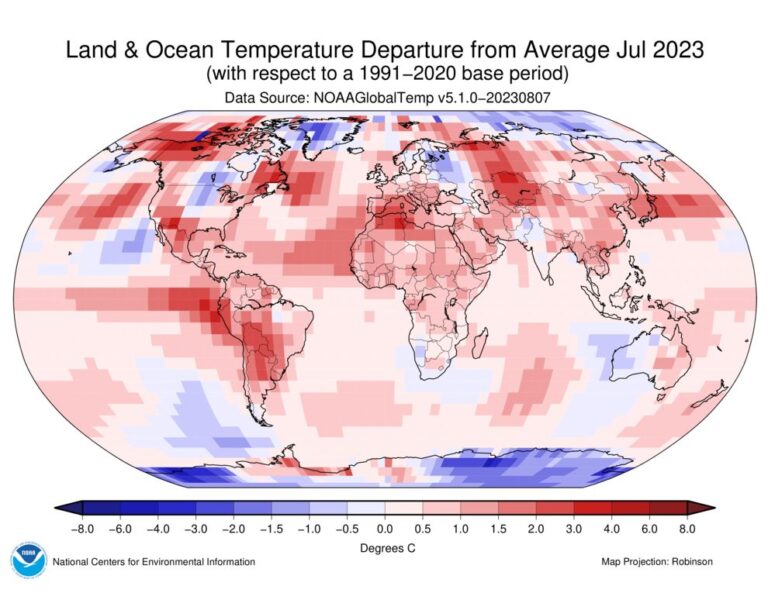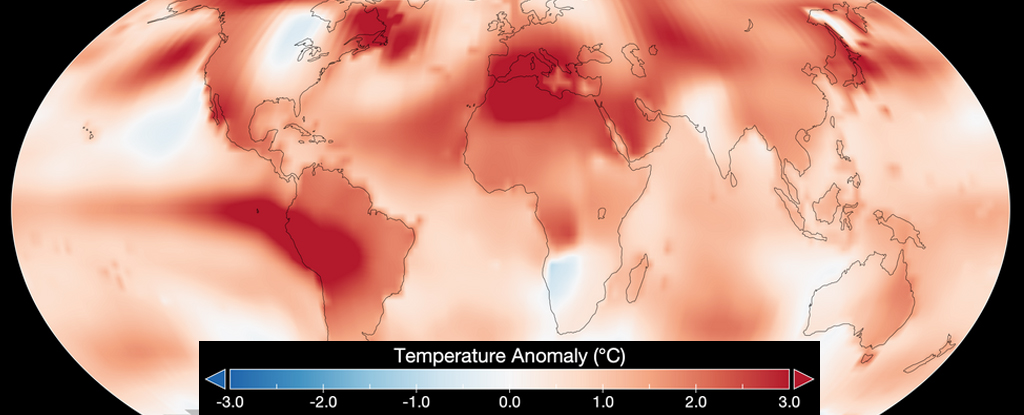NASA has just confirmed July 2023 was the hottest month since 1880.
For anyone paying the slightest bit of attention this shouldn't be a surprise. The heartbreaking disasters still cascading around the world have converted Earth's fever into a painful reality.
"NASA data confirms what billions around the world literally felt: temperatures in July 2023 made it the hottest month on record. In every corner of the country, Americans are right now experiencing firsthand the effects of the climate crisis," says NASA Administrator Bill Nelson.
"The science is clear. We must act now to protect our communities and [our livable] planet; it's the only one we have."
From July 3 to August 7 we experienced 36 days straight of temperatures higher than the previous record.
The mass of fossil fuels we've poured into our atmosphere, coupled with Earth's shift from La Nino to El Niño, has forced tens of millions of people to direcftly endure the severe heat of recent few months. Many in China have sought refuge from the heat in air raid shelters, while hundreds succumbed to heat-related illnesses.
That excess energy has wrought havoc on Earth's atmospheric, glacial, and ocean systems. As fires ravage Canada, Russia, Europe, Africa, and Hawaii, storm and monsoon-fueled floods struck parts of the US, Middle East, Asia and Europe.

Temperature anomalies for July 2023. (NOAA)
In light of these records NOAA predicts 2023 has a 50 percent chance of being the hottest year we've experienced since we humans began keeping records.
"2023 to date has been the third warmest on record," NOAA chief scientist Sarah Kapnick told AFP .
"It is virtually certain – over 99 percent chance – that 2023 will rank among the five warmest years on record with a nearly 50 percent probability that 2023 will rank warmest on record."
We are in uncharted territory.
"The biggest impact of El Niño will actually occur in 2024," director of the NASA Goddard Institute for Space Studies, Gavin Schmidt, told AFP. "So we're anticipating that not only is 2023 going to be exceptionally warm and possibly a record warm year, but we anticipate that 2024 will be warmer still."
All this is happening at only about 1.1°C of warming and we've currently locked in about 0.4°C more. It's already too late for many animals, ecosystems, some homes, and many individual people.
Coral reefs off the US coast experienced 100 percent mortality during this heat, which also interrupted attempts to aid reef recovery and increase their resilience.
But this doesn't mean it's too late to act. Every fraction of a degree we can mitigate will save countless future lives.
What's more, while frightening, these extremes and their associated events are well within expected climate model projections when the El Niño conditions are accounted for.
"Just because things are not "worse than we thought" in terms of global temperatures does not mean that the problem is not severe and getting worse," explains Berkley climatologist Zeke Hausfather in a blog post.
After decades of warnings, stopping fossil fuel emissions still remains the top priority, yet the companies responsible continue to reap mind-blowing profits with continued support of world leaders.
Unless we make some drastic, system-wide changes, Earth's fever is here to stay.
- Adenman
-

 1
1



Recommended Comments
There are no comments to display.
Join the conversation
You can post now and register later. If you have an account, sign in now to post with your account.
Note: Your post will require moderator approval before it will be visible.